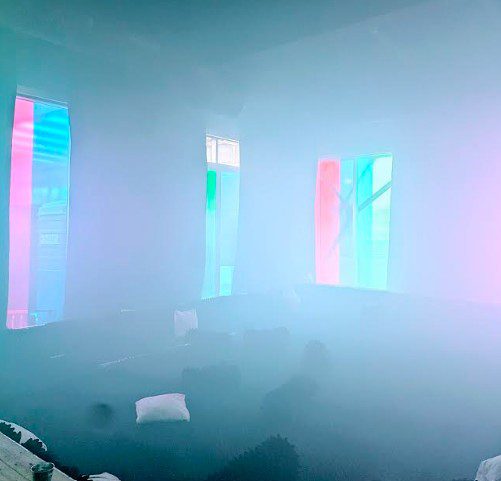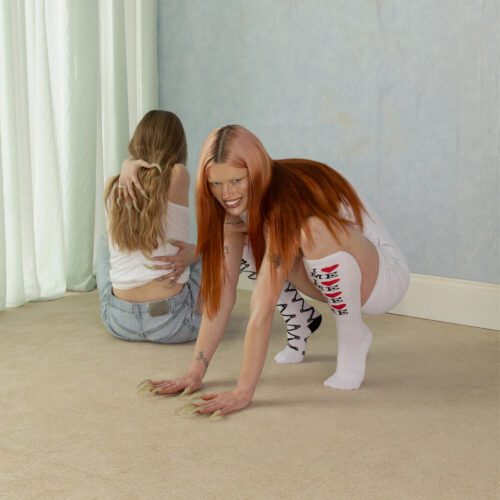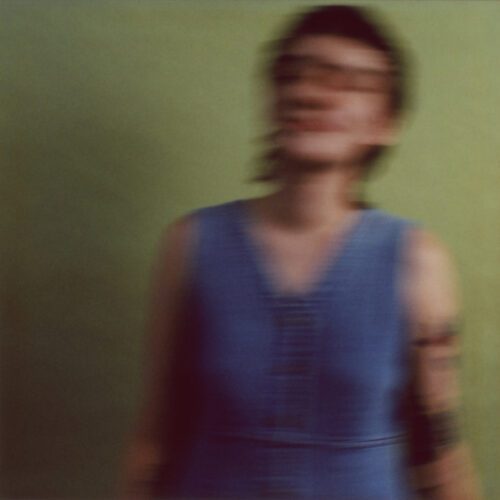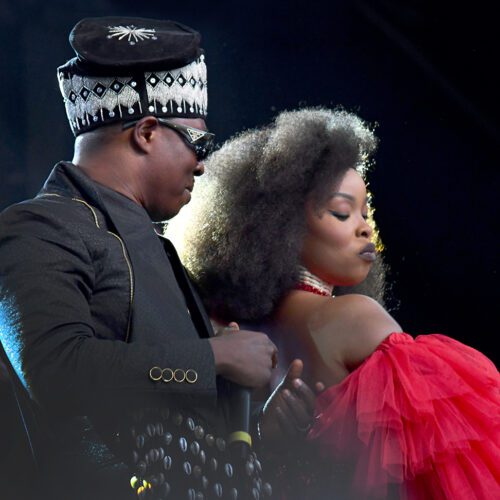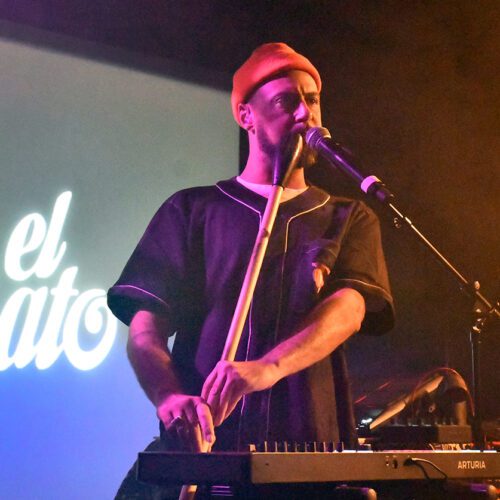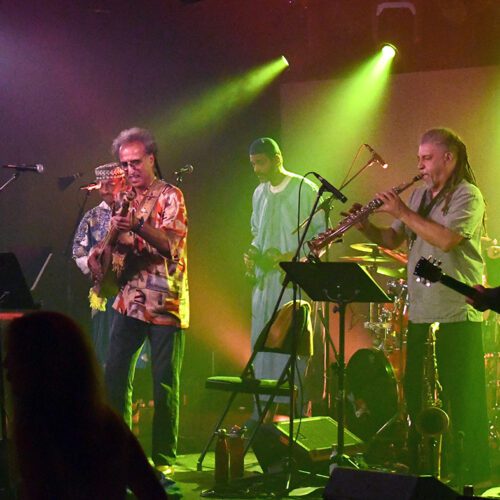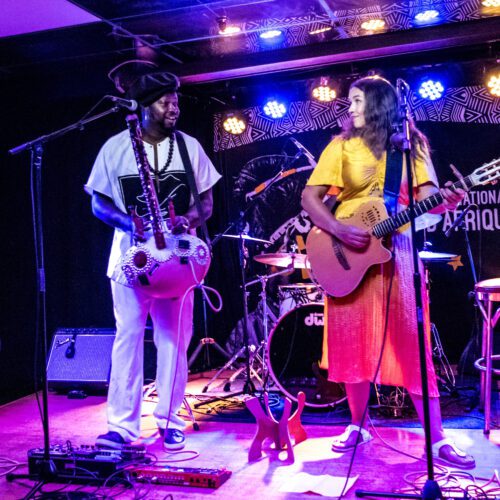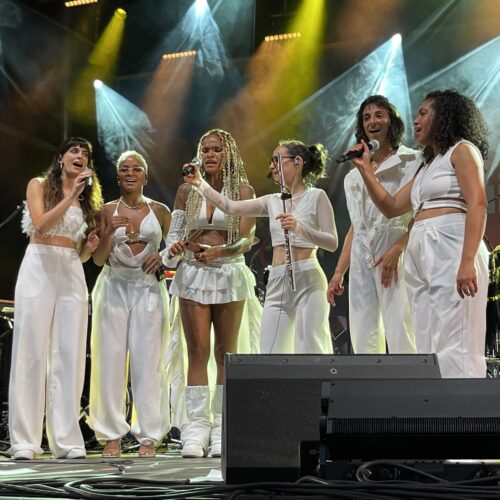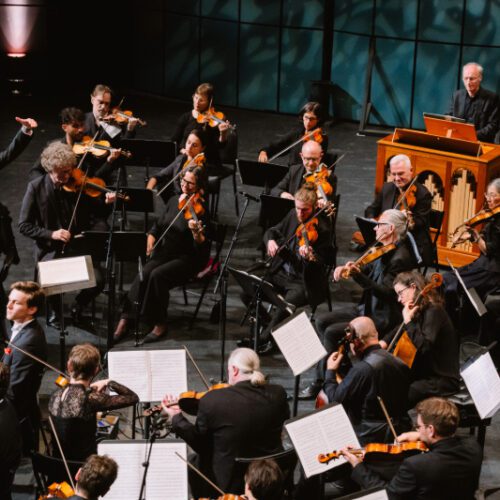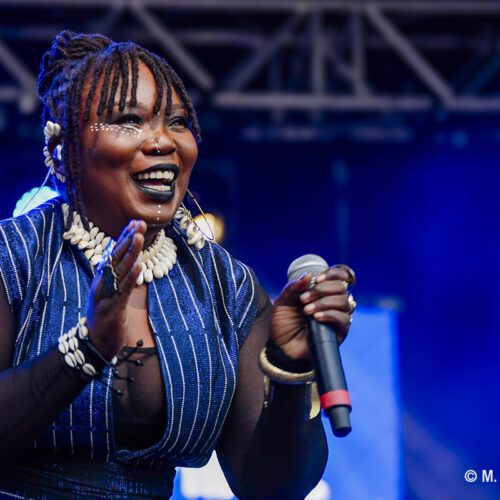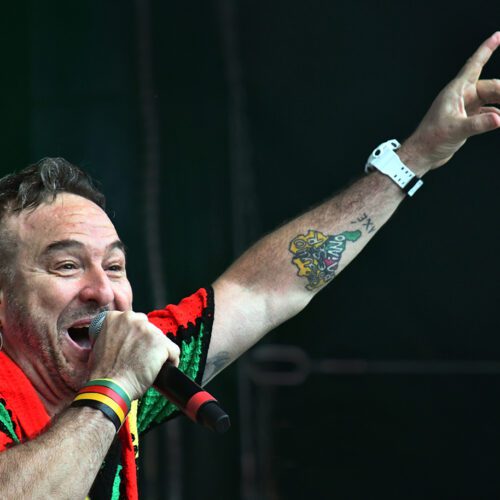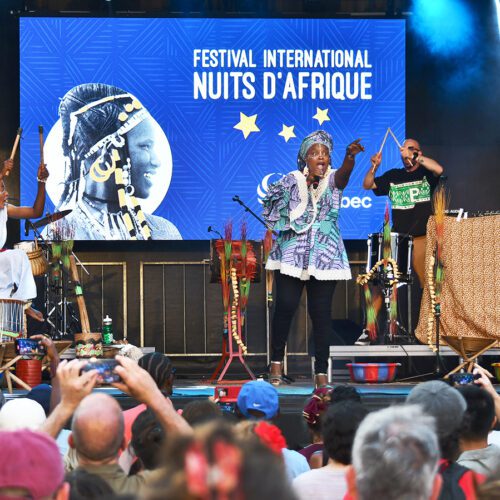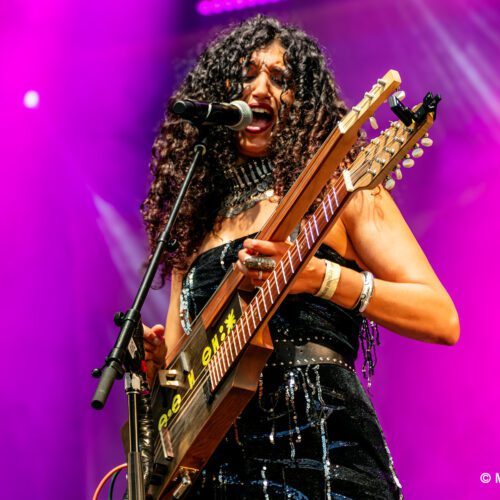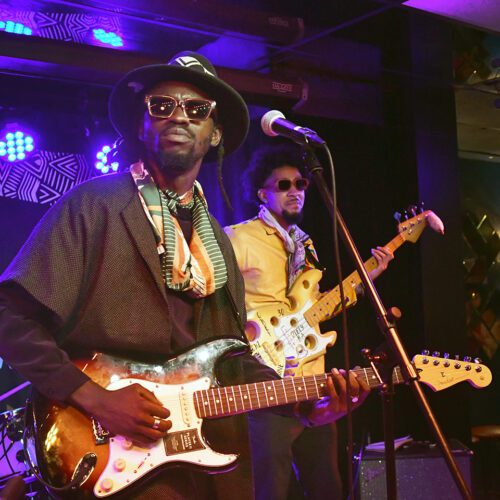We arrived just after dark, greeted by a wash of fog and the soft glow of strobe lights already in motion. Exposé Noir was alive. Phone cameras were sealed, voluntarily forgotten, and replaced by a strange sense of intimacy and trust. This was more than a party. It felt like entering a curated microcosm, a world built on rhythm, breath, and sweat, where mutual respect made space for joy.
Up on the Terrasse, Tiga was already in flow. A Montreal legend with a long legacy in global electronic music, he moved effortlessly through eras. Disco basslines bubbled under Björk-like vocal textures. It was elegant, surprising, almost cinematic. The view from the Belvedere heightened the surrealism, Habitat 67 and the Biosphere loomed across the dark water like props in a dream. There was a moment, just after a beat dropped into silence, when we looked around and realized: people weren’t documenting this. They were living it. You could feel the intention in the design of the space: immersive, generous, protective.
But it was next door, inside the Belvedere, that the real spell took hold. The lighting work was stunning: soft, sharp, atmospheric. Fog wrapped the room in velvet. Lights refracted through it, sculpting bodies in motion. It felt ceremonial, like entering a collective trance.
Yazzus, the Ghanaian-British DJ rising out of Berlin’s queer underground, took the helm and catapulted the night into another dimension. Her set was radiant: fast, sexy, explosive. She pulled from Ghettotech, Jungle, and early 2000s rave nostalgia, but the result was unmistakably her own. With every drop and build, she was carving out a space that was both ecstatic and vulnerable. High-octane but joyful, she gave us permission to fully let go. The room responded in kind. As we were told earlier that night, “It’s about intensity, but it’s also about care.”
Then came DJ Tool, steering us deeper into the dark. A core member of Berlin’s Mala Junta collective, he’s known for pushing high-speed, emotionally charged techno with surgical precision. His set was relentless, industrial, physical, and unflinching. If Yazzus gave us wings, Tool locked us into the tunnel and hit accelerate. But even here, in the harshest moments, there was a sense of control and trust of being taken somewhere on purpose.
That night at Exposé Noir didn’t just showcase three DJs. It honored the emotional architecture of nightlife: how the right energy, sound, and setting can move a room beyond escapism into something deeper. It reminded us how good it feels to be completely, fully there.
